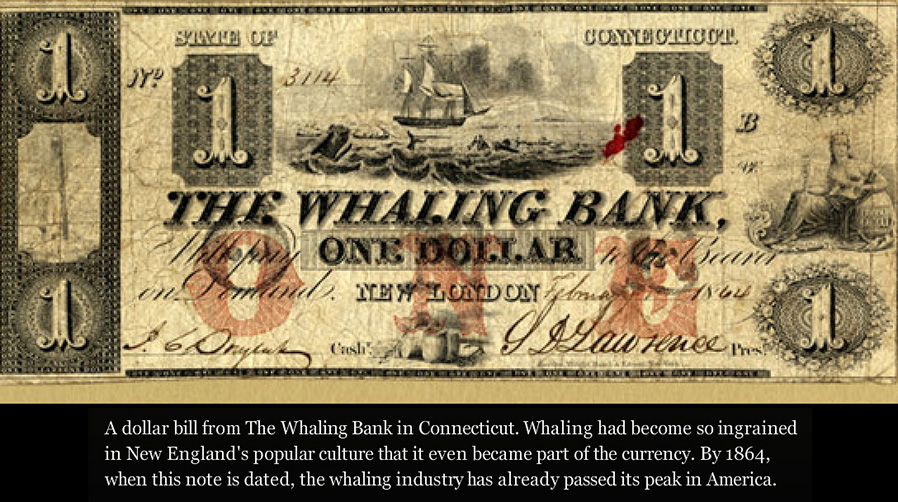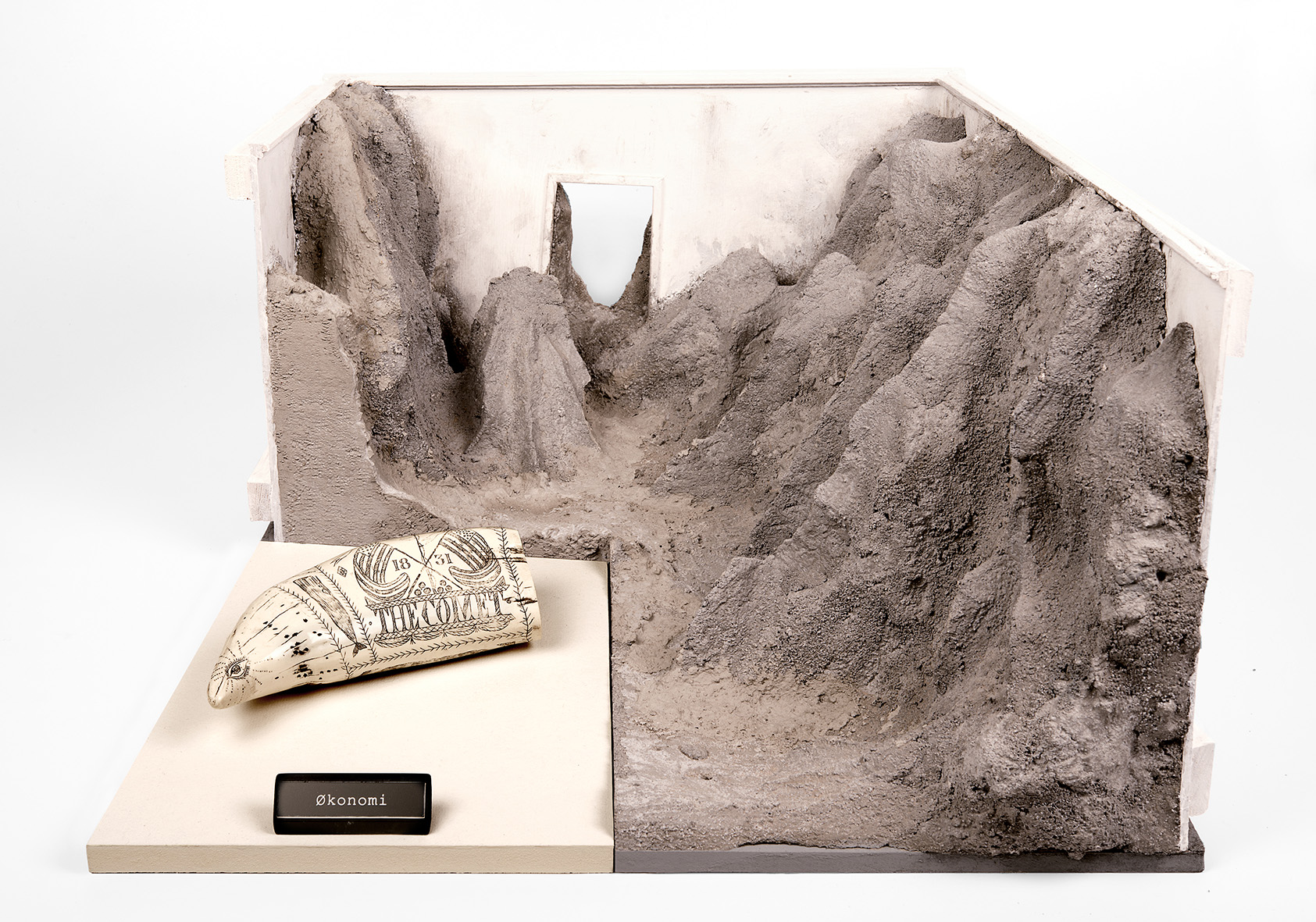Økonomi
The White Whale
Excerpt from The White Whale, written by Arshan Bobrovitch Levitan and printed on page 25-26 of the Russian newspaper St. Petersburg Vedomosti on the 23rd of February 1983 (English translation by Dr. Jeremy Maslov):
“I would rather be ashes than dust! I would rather that my spark should burn out in a brilliant blaze than it should be stifled by dry-rot. I would rather be a superb meteor, every atom of me in magnificent glow, than a sleepy and permanent planet. The function of man is to live, not to exist. I shall not waste my days trying to prolong them”.
Vladimir Ivanovich Bobrov looked at his father, Ivan Mikhailovich Bobrov, who, sitting in his wing chair, looked up at the ceiling. Ivan had ended his speech with feigned solemnness and a posture that looked like an attempt to look down on the ceiling above him. Ivan Bobrov, 55 years of age, had dedicated his life hunting for meteorites, and his son was his companion and humble servant. Ivan had the largest collection of meteorites and meteorite curiosities in the world. All the years of collecting meteorites, many of them radioactive, made Ivan and Vladimir look much older than their actual age. Their skin was grossly wrinkled, hair almost absent, their mouths were caved in, hiding a grotesque toothless gum, and their noses were regularly bleeding.
For years Ivan and Vladimir had been searching for the famous White Whale Meteorite (also called the Tungus Meteorite). All experts were convinced that the meteorite was a myth, but Ivan didn’t want to listen. “My desire is that one day the Moon will fall down through darkness and turn all life on Earth into ashes. That day my collection is complete. Until then the White Whale will have to do”, Ivan often said, and his son listened. And on the 30th of June, 1961, in an area near the Tunguska River in Siberia, they found what they were looking for: a piece of the White Whale Meteorite more then two meters in diameter.
Now, six month later, Ivan and Vladimir were respectively sitting and standing in the living room at the ground floor of their apartment in Vladivostok. In the room above them the floor was constantly creaking under the weight of the White Whale Meteorite. Ivan sat in his wing chair at the centre of the room, in the exact spot that the meteorite was expected to hit when the floor got tired of its weight.
Ivan lived in that chair, “awaiting my destiny”, he said, and continued: “I will be the first creature in the universe to observe a meteorite fall at such a close range”. He slept only one hour a day, and his son was to wake him up at any sign of movement from above.
One tragic morning on the 2nd of March 1962, the White Whale made its way through the ceiling and surprised Vladimir dozing off on duty. He woke up by the crackling sound of his father being killed in his sleep.”
Notes on the origin of the text:
As a man of weak character, Vladimir was driven to madness by loss, grief, solitude and self-pity, and ended up in Molny Kotelnich, a mental institution just outside Vladivostok. With the guidance of Dr. Arshan he began to write his way out of his misery. Page after page, until his death on the 13th of October 1968. Dr. Arshan sent the manuscript to a friend, Dr. Levitan, professor of literature at Saint Petersburg State University. After many years of work, trying to edit and structure the manuscript, the original 1600 pages had grown to approximately 2100 pages. Dr. Levitan was tired. Knowing that his life was coming to an end, he made a short synopsis of the manuscript and sent it to the local newspaper St. Petersburg Vedomosti, who put it on print on the 23rd of February 1983. The next day Dr. Levitan was found dead in his office, sitting in an odd pose on the floor in front of the fireplace.
The White Whale Meteorite, parts of Bobrov’s collection and the original newspaper article is today in the possession of The Russian Academy of Sciences in Moscow. Dr. Levitan’s original manuscript is nothing but ashes.
Lenker
http://blood-and-water.animalplanet.com/chapter2.html
https://en.wikipedia.org/wiki/History_of_whaling
https://en.wikipedia.org/wiki/Whaling
http://www.pbs.org/wgbh/americanexperience/features/photo-gallery/whaling-gallery/
https://fee.org/articles/how-capitalism-saved-the-whales/
https://www.theguardian.com/books/2008/aug/24/scienceandnature
http://www.greenpeace.org/new-zealand/en/campaigns/oceans/whales/history-of-whaling/
http://www.scran.ac.uk/packs/exhibitions/learning_materials/webs/40/explosives.htm
http://www.workersliberty.org/node/24930
https://simple.wikipedia.org/wiki/Napalm
https://en.wikipedia.org/wiki/War_economy
http://global.britannica.com/topic/whale-oil
http://io9.gizmodo.com/5930414/1846-the-year-we-hit-peak-sperm-whale-oil
http://www.nytimes.com/2008/08/03/nyregion/03towns.html?_r=0
https://en.wikipedia.org/wiki/Anti-whaling
http://whalemuseum.org/pages/about-us
http://naturalhistory.si.edu/onehundredyears/profiles/Whales_SI.html
http://cabinetmagazine.org/issues/33/gronberg_magnusson.php
http://www.atlasobscura.com/articles/the-lost-and-found-art-of-assembling-whale-skeletons
https://en.wikipedia.org/wiki/Werckmeister_Harmonies
http://lithub.com/a-literary-history-of-whales/
https://en.wikipedia.org/wiki/Jonah
https://en.wikipedia.org/wiki/Moby-Dick
http://www.reed.edu/english/courses/English341nn/daily/w7w.html
http://www.pum.umontreal.ca/revues/surfaces/vol4/murphy.html
http://railroads.unl.edu/blog/?p=6
http://www.commondreams.org/views/2015/05/30/what-moby-dick-can-teach-us-about-war-terror
https://en.wikipedia.org/wiki/Moby_Dick_(1956_film)
http://natedsanders.com/lot-32779.aspx
http://www.smithsonianmag.com/history/the-true-life-horror-that-inspired-moby-dick-17576/?no-ist
https://theamericanscholar.org/the-lovable-leviathan/ - .V1XHHFcww7c
http://onthetudortrail.com/Blog/2010/10/20/elizabeth-is-magical-unicorn-by-carlyn-beccia/
https://en.wikipedia.org/wiki/Unicorn
https://en.wikipedia.org/wiki/Unicorn_(finance)
https://en.wikipedia.org/wiki/Athanasius_Kircher
http://www.amazon.com/Athanasius-Kirchers-Theatre-World-Universal/dp/1620554658
https://en.wikipedia.org/wiki/Narwhal
http://www.amazon.com/Leviathan-Philip-Hoare/dp/0007230141
https://www.theguardian.com/books/2008/aug/24/scienceandnature
https://en.wikipedia.org/wiki/Hubble_Space_Telescope
http://ngm.nationalgeographic.com/2015/04/hubble-telescope/hubble-photography
https://en.wikipedia.org/wiki/Voyager_1
http://voyager.jpl.nasa.gov/spacecraft/goldenrec.html
https://www.youtube.com/watch?v=seXbrauRTY4
http://www.smithsonianmag.com/science-nature/what-is-on-voyagers-golden-record-73063839/?no-ist
https://www.youtube.com/watch?v=aV43X8KkbUk&index=3&list=PLA5Z0m2JKyVJUgkMG08WP8KsAvLrjfkjP


/32.Oekonomi2m.jpg)